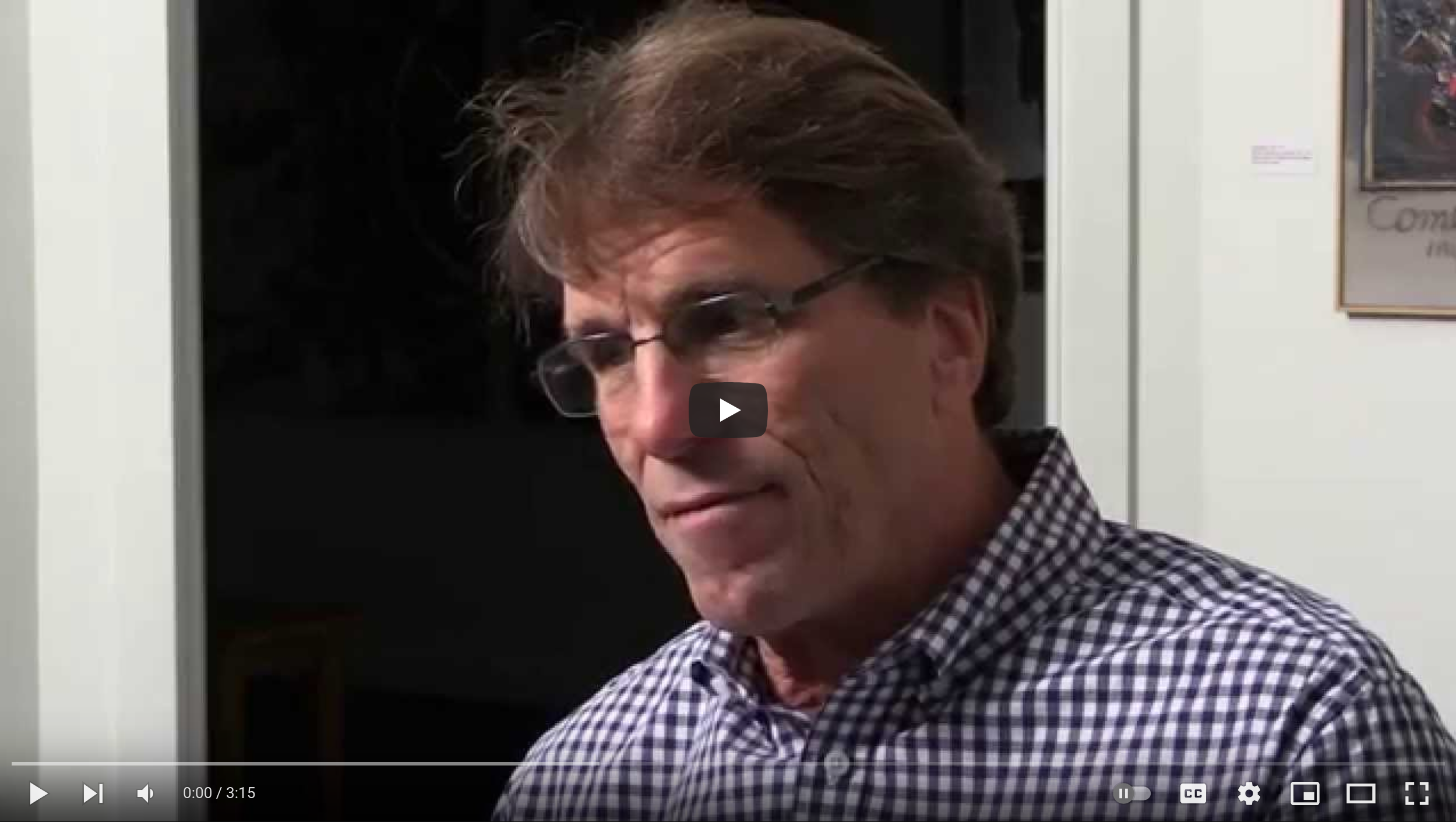News & Announcements
- Details
- Written by Joshua Wachtel
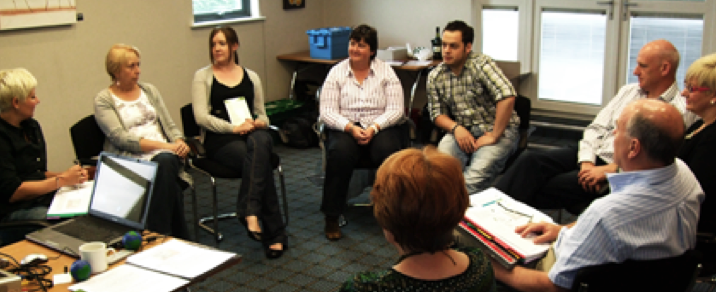 Efforts by IIRP Canada and its partners have exciting implications for the application of restorative practices in the workplace.
Efforts by IIRP Canada and its partners have exciting implications for the application of restorative practices in the workplace.
Bruce Schenk, director of IIRP Canada, recently worked with the Department of Community Services of Nova Scotia to support its goal of “becoming a restorative organization” and enhancing employee relationships.
- Details
- Written by Joshua Wachtel
Community
For the city of Chicago, writes Robert Kohler, "The vision is a city interlaced with restorative justice hubs — community centers that bring hope and promise to troubled kids in a town where too many of them are dying."
Brattleboro Community Justice Center has a tradition of holding talking circles for the community during International Restorative Justice Week every year. This year, in light of a local heroin epidemic, the topic was the impact of drug abuse.
The Restorative Justice Project of the Midcoast (Maine), a partner in the RAND study examining restorative practices whole-school change implementation in 16 Maine Schools, celebrates 10 years of working with schools, youth and adults.
- Details
- Written by Laura Mirsky
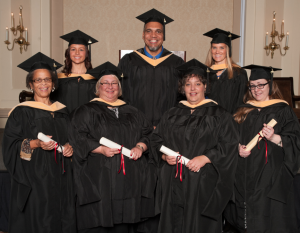 The International Institute for Restorative Practices' 2014 Graduating Class The IIRP Graduate School Class of 2014 is taking what they’ve learned out into the world and making it a better place.
The International Institute for Restorative Practices' 2014 Graduating Class The IIRP Graduate School Class of 2014 is taking what they’ve learned out into the world and making it a better place.
At the Seventh Commencement of the International Institute for Restorative Practices Graduate School, on October 26, 2014, seven new recipients of the Master of Science in Restorative Practices were excited to share how their IIRP education has transformed their work with students, children and youth, and in their communities.
The graduates received their degrees from IIRP President and Founder Ted Wachtel, in a traditional ceremony. Then, instead of a commencement speaker, in what has become an IIRP Graduate School tradition, the graduates modeled an essential principle of restorative practices: giving everyone a voice. They all shared their experience of IIRP education and their passion for restorative practices, in a “talking circle.”
- Details
- Written by Joshua Wachtel
Papers, slides and handouts from many of the breakout sessions held during the IIRP's 17th World Conference, held in Bethlehem, Pennsylvania, USA, October 27 - 29, 2014, have now been posted on the International Institute for Restorative Practices' web site.
You may also watch the complete plenary sessions from the conference below.
- Details
- Written by IIRP

The 17th IIRP World Conference
October 27-29, 2014 | Bethlehem, Pennsylvania
Pre/post-conference Oct. 25-26 & Oct. 30-31
- Details
- Written by Laura Mirsky
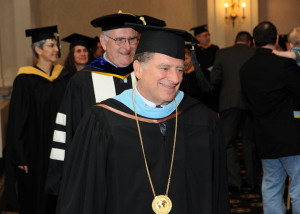 IIRP President and Founder Ted WachtelTed Wachtel, President and Founder of the International Institute for Restorative Practices (IIRP), has announced his intention to retire from the presidency in June 2015, at the end of the IIRP Graduate School’s academic year. Ted will continue to pursue the sort of visionary restorative projects that have been his hallmark, which the IIRP will support and report on.
IIRP President and Founder Ted WachtelTed Wachtel, President and Founder of the International Institute for Restorative Practices (IIRP), has announced his intention to retire from the presidency in June 2015, at the end of the IIRP Graduate School’s academic year. Ted will continue to pursue the sort of visionary restorative projects that have been his hallmark, which the IIRP will support and report on.
Passionate about the power of restorative practices — giving people a voice and a choice in things that matter to them — to build social capital and improve civil society, Ted envisioned and founded the IIRP and shepherded its expansion across the globe — in education, justice, social services and other fields. Ted was also the driving force behind the establishment of the IIRP as an accredited graduate school and the recognition of restorative practices as a field worthy of study at the graduate level.
- Details
- Written by Joshua Wachtel
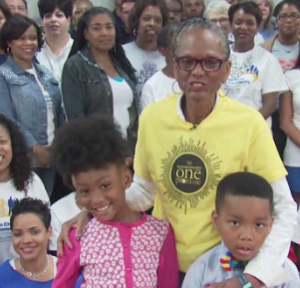 Superintendent of Pittsburgh Public Schools, Dr. Linda S. Lane, welcomes families back to school.One in five students was suspended from Pittsburgh Public Schools last year. One school suspended 79 percent of its students. What’s more, many students say they feel they have to fight to defend themselves in school.
Superintendent of Pittsburgh Public Schools, Dr. Linda S. Lane, welcomes families back to school.One in five students was suspended from Pittsburgh Public Schools last year. One school suspended 79 percent of its students. What’s more, many students say they feel they have to fight to defend themselves in school.
To make their schools safer, the leadership of Pittsburgh Public Schools, like those in several other school districts across the country, is embarking on a watershed project to implement restorative practices — a proven alternative to ineffective and harmful zero tolerance policies.
- Details
- Written by Joshua Wachtel
Chicago Public Schools (CPS), the third largest district in the U.S., is collaborating with more than two dozen Chicago-based organizations to end the school-to-prison pipeline by implementing restorative practices.
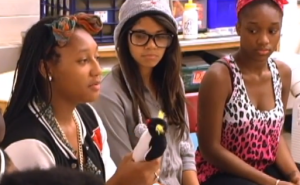 Student explains the use of a talking piece during a circle at Umoja's 2013 Community Builders "Safe Spaces" summer internship.Ten years of grassroots organizing and practice has raised community awareness and helped demonstrate the effectiveness of restorative justice. Efforts have also led to policy changes, such as the revision of the CPS Student Code of Conduct and the city’s Juvenile Justice Code, which explicitly include restorative justice. Balanced and Restorative Justice, according to the CPS Student Code of Conduct include “ways of thinking about and responding to conflicts and problems by involving all participants to identify what happened, describe how it affected everyone, and find solutions to make things right.”
Student explains the use of a talking piece during a circle at Umoja's 2013 Community Builders "Safe Spaces" summer internship.Ten years of grassroots organizing and practice has raised community awareness and helped demonstrate the effectiveness of restorative justice. Efforts have also led to policy changes, such as the revision of the CPS Student Code of Conduct and the city’s Juvenile Justice Code, which explicitly include restorative justice. Balanced and Restorative Justice, according to the CPS Student Code of Conduct include “ways of thinking about and responding to conflicts and problems by involving all participants to identify what happened, describe how it affected everyone, and find solutions to make things right.”
- Details
- Written by Joshua Wachtel
Bullying is a great area of concern, especially in schools. In this video, IIRP Instructor Lee Rush talks about the way restorative practices dovetails with bullying prevention.
- Details
- Written by Joshua Wachtel
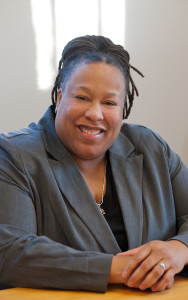 Dr. Stacey Miller, Director of Residential Life at the University of Vermont (UVM) since 2003, receives a lot of calls from people across the country inquiring about how they can bring restorative practices to their campuses. “I can feel the momentum swinging. It’s going to tip,” she says.
Dr. Stacey Miller, Director of Residential Life at the University of Vermont (UVM) since 2003, receives a lot of calls from people across the country inquiring about how they can bring restorative practices to their campuses. “I can feel the momentum swinging. It’s going to tip,” she says.
Miller was elected this month to serve on the IIRP Board of Trustees. Her enthusiasm for restorative practices has made her an effective leader of implementation efforts in her department and across campus. Now she will bring that leadership to the Board of the IIRP. “I am honored to have even been asked,” Miller says. “I am really humbled by the opportunity to participate and be a Board member.”

Restorative Works Year in Review 2024 (PDF)
All our donors are acknowledged annually in Restorative Works.

